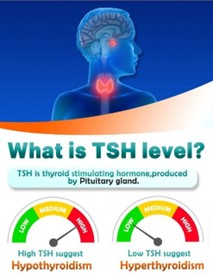A nurse is reinforcing teaching about exercise with a client who has type 1 diabetes mellitus. Which of the following statements by the client indicates an understanding of the teaching?
“I should avoid injecting insulin into my thigh if I am going to go running.”
“I will carry a complex carbohydrate snack with me when I exercise.”
“I should exercise first thing in the morning before eating breakfast.”
“I will increase the intensity of my exercise routine if my urine is positive for ketones.”
The Correct Answer is A
Choice A reason: Injecting insulin into a muscle that is going to be exercised can increase the absorption of insulin and lower the blood glucose level, leading to hypoglycemia. Therefore, it is advisable to avoid injecting insulin into the same body part that will be involved in the exercise.
Choice B reason: Carrying a complex carbohydrate snack with you when you exercise is not a good idea. Complex carbohydrates take longer to digest and raise the blood glucose level slowly. They are not suitable for treating or preventing hypoglycemia during or after exercise. A simple carbohydrate snack, such as glucose tablets, juice or candy, is more appropriate for this purpose.
Choice C reason: Exercising first thing in the morning before eating breakfast is not recommended for people with type 1 diabetes. This can cause a drop in blood glucose level and increase the risk of hypoglycemia. It is beter to have a balanced breakfast that includes some carbohydrates and adjust the insulin dose accordingly before exercising.
Choice D reason: Increasing the intensity of your exercise routine if your urine is positive for ketones is a dangerous practice. Ketones are produced when the body breaks down fat for energy due to lack of insulin or glucose. High levels of ketones can lead to diabetic ketoacidosis, a life-threatening condition that requires urgent medical atention. Intense exercise can raise the blood glucose level further and worsen the situation. If your urine is positive for ketones, you should avoid vigorous activity and check your blood glucose and ketone levels frequently.
Nursing Test Bank
Naxlex Comprehensive Predictor Exams
Related Questions
Correct Answer is C
Explanation
Choice A: Thyroxine (T4) level. This is incorrect because T4 is one of the thyroid hormones that is increased in hyperthyroidism. T4 is produced by the thyroid gland and converted to T3 in the tissues. A high level of T4 indicates overactivity of the thyroid gland.1
Choice B: Triiodothyronine (T3) level. This is incorrect because T3 is another thyroid hormone that is increased in hyperthyroidism. T3 is the more active form of thyroid hormone and regulates the metabolism of cells. A high level of T3 indicates overactivity of the thyroid gland.1
Choice C: Thyroid stimulating hormone (TSH) level. This is correct because TSH is a hormone that stimulates the thyroid gland to produce T4 and T3. TSH is produced by the pituitary gland and regulated by a feedback mechanism. When the levels of T4 and T3 are high, the pituitary gland reduces the secretion of TSH to inhibit further production of thyroid hormones. Therefore, a low level of TSH indicates hyperthyroidism.1
Choice D: Glucose level. This is incorrect because glucose level is not directly related to thyroid function. However, hyperthyroidism can affect glucose metabolism and cause increased blood sugar levels due to increased breakdown of glycogen and glucose uptake by cells. Therefore, glucose level may be elevated in some cases of hyperthyroidism, but it is not a specific indicator.

Correct Answer is D
Explanation
Choice A reason: Insulin injected into the thigh is not the most rapidly absorbed. The abdomen is the preferred site for insulin injection, as it has the fastest and most consistent absorption rate. The thigh, arm, and butock have slower and more variable absorption rates12.
Choice B reason: The botle of insulin should not be shaken before withdrawing the medication. Shaking can damage the insulin molecules and affect their potency and effectiveness. Instead, the botle should be gently rolled between the palms to mix the insulin evenly13.
Choice C reason: Lantus insulin should not be used immediately before each meal. Lantus is a long-acting insulin that provides a steady basal level of insulin for 24 hours. It should be taken once a day at the same time every day, regardless of meals. Humalog is a rapid-acting insulin that can be used immediately before each meal to cover the postprandial glucose spikes14.
Choice D reason: Unopened vials of insulin should be kept in the refrigerator until needed. This can help preserve their quality and potency until their expiration date. Opened vials of insulin can be kept at room temperature for up to 28 days, depending on the type and brand
Whether you are a student looking to ace your exams or a practicing nurse seeking to enhance your expertise , our nursing education contents will empower you with the confidence and competence to make a difference in the lives of patients and become a respected leader in the healthcare field.
Visit Naxlex, invest in your future and unlock endless possibilities with our unparalleled nursing education contents today
Report Wrong Answer on the Current Question
Do you disagree with the answer? If yes, what is your expected answer? Explain.
Kindly be descriptive with the issue you are facing.
